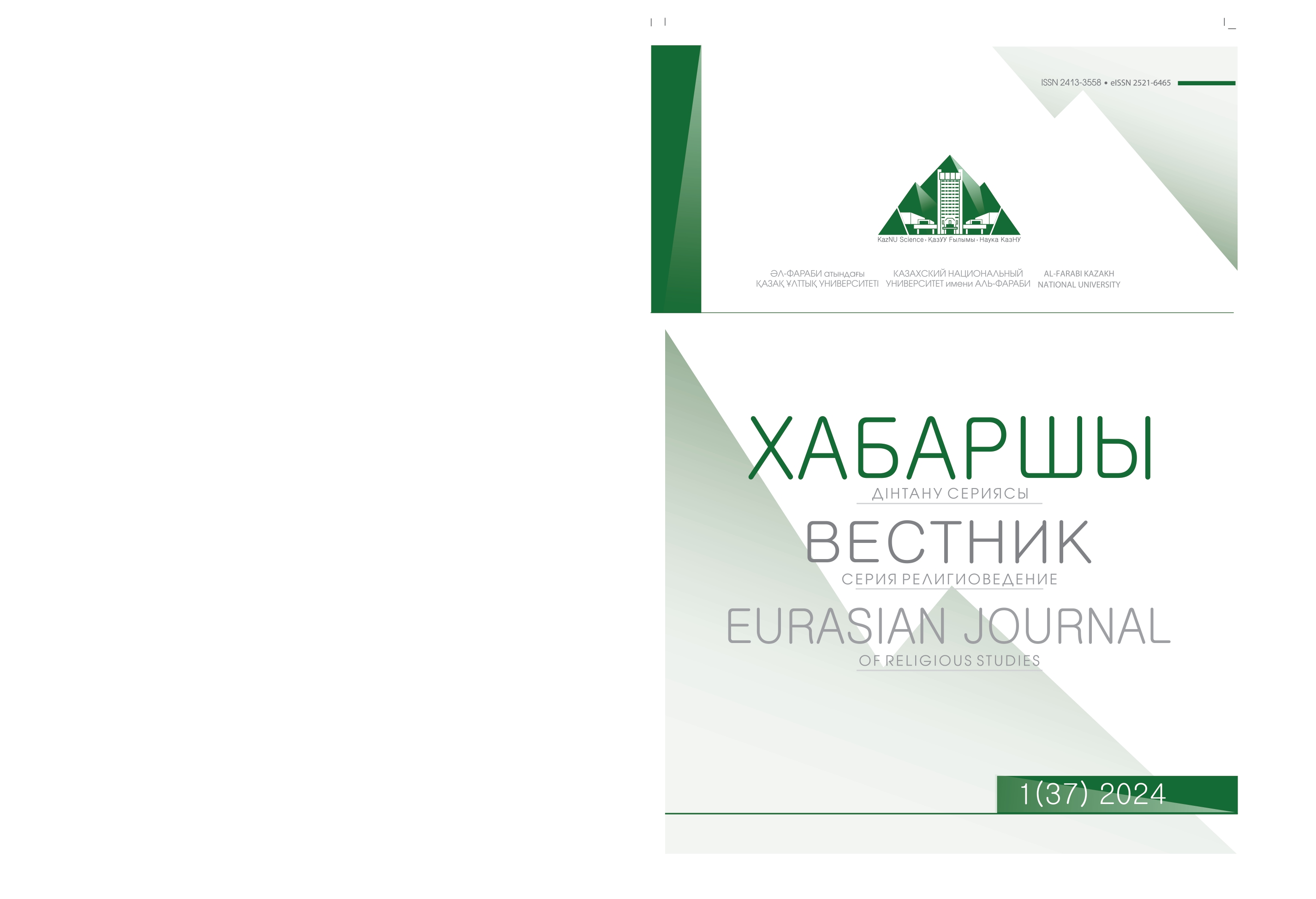Turkish religious communities in modern Kazakhstan: leaders, vectors of activity
DOI:
https://doi.org/10.26577//EJRS.2024.v37.i1.r5Abstract
Sufism on a global scale has a rich history and has influenced various cultures and religious traditions. In the context of Kazakhstan, it is associated with a rich Sufi heritage: hagiographies, manuscripts, architectural monuments, descendants of Sufis and Sufi groups. Sufi teaching has its roots in Islam, but despite this, the modern meaning of Sufism transcends religious boundaries and dogma, making it relevant to various aspects of modern life, including science and personal practice. Modern Sufism has the characteristics of a “universal truth” that incorporates various Sufi traditions. As noted in postmodern theories, traditional religious teachings, including Sufism, are being transformed and adapted to modern realities. The legitimacy of such actions is the subject of scientific and lay debate. In general, the centuries-old history of Sufism and its popularity in modern times indicate the relevance of the stated topic. In recent years, Turkish religious groups have become increasingly active on the world stage, engaging in activities ranging from humanitarian aid to educational initiatives and religious activities. These groups, often associated with various Islamic movements and organizations, play a significant role in shaping the discourse.
Key words: sufism, sufi jamaat, turk religious groups, sufi tradition, sufi activities













